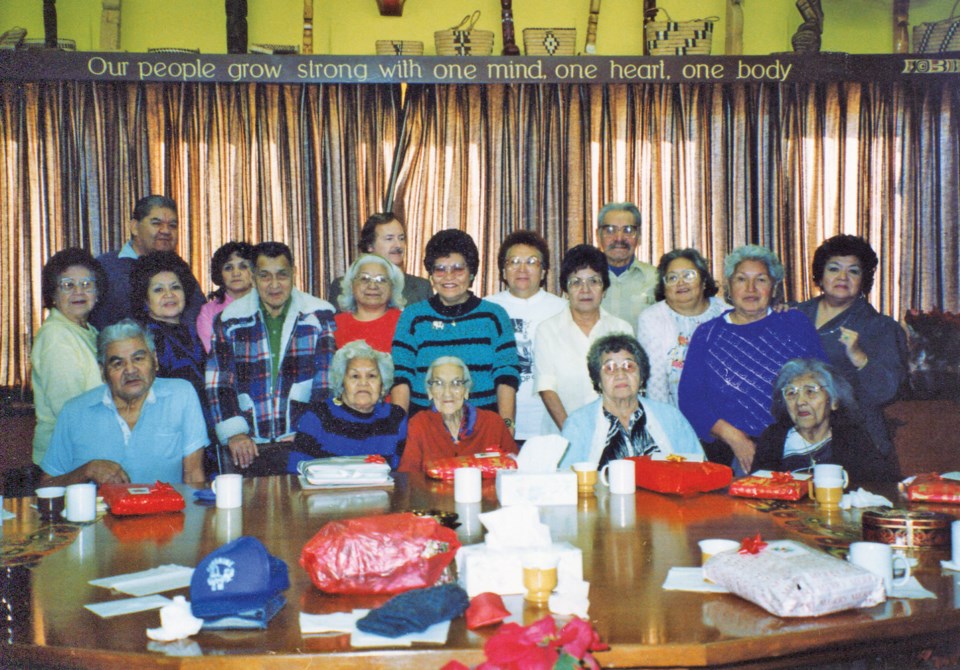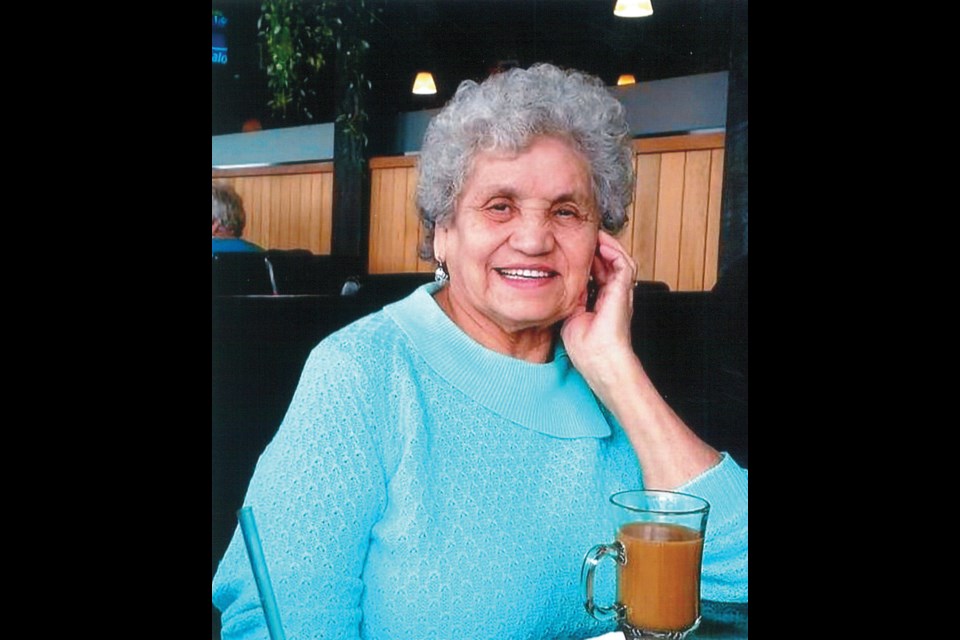Yvonne Joe (kekshiwa) died on the morning of Jan. 24 at the age of 81. The respected elder was venerated for her lifelong effort to preserve she shashishalhem – the traditional language spoken by the shíshálh people.
Along with Margaret Joe Dixon and Anne Quinn, who also died this winter, Joe was part of the last generation of people born into the language who remained conversant.
“We only had three fluent shíshálh language speakers in our nation and that was Margaret Dixon, Anne Quinn and Yvonne Joe. The loss for our Nation is too great a burden to bear,” said shíshálh Nation Coun. Keith Julius.
“It’s really tough to come to the realization of what this actually means,” said Steven Feschuk, the Nation’s protector of culture.

That loss has been tempered, however, by the more than 40 years that these and other elders spent gathering together in a language group that diligently worked to encode the oral language into written form, beginning with the publication of a textbook and culminating in the she shashishalhem-English dictionary.
Feschuk, who coordinates the group’s meetings, called the women the Nation’s three “fully fluent elders” within the group.
Endangerment afflicts most of the 90 living Indigenous languages in Canada, in large part because generations of families were prevented from speaking their mother tongue at residential school.
For the shíshálh community, language suppression policies at St. Augustine’s Residential School caused a rapid waning after its opening in 1904 and drove the language underground, where it became a kind of “secret society,” according to one of Yvonne Joe’s relatives, mostly spoken out of earshot of children.
Feschuk said one of the reasons Yvonne Joe was able to hold on to her language was because she was given permission to leave school to tend to her grandmother, who was unable to walk and needed care.
The Canada-wide crisis has caught the attention of the federal government. On Tuesday, the Indigenous Languages Act was introduced – aimed at revitalizing Indigenous languages through funding and other measures.
People within shíshálh Nation, however, have been aware of the danger of loss – and acting to prevent it – since at least the 1970s. That’s when the Native Environmental Studies Program was launched, and when leadership approached UBC linguist Ron Beaumont to build a language course for that program.
Initially, Beaumont had met with one elder, Cecile August, but over decades those meetings morphed into the language group.
Beaumont and elders would gather in the former band office around a circular boardroom table etched with carvings. Armed with notepads, a tape recorder and his pipe, Beaumont began unpacking the sophisticated language with the help of the elders.
“When I went into this work it was driven by that fascination of languages that no longer exist,” recalls Beaumont. “Certainly I got to change my view fairly early on and realized maybe we can do something rather than just create what I call museum pieces.”
The group continued its biweekly meetings. In 1985, Beaumont published she shashishalhem, a textbook designed for public school students. At the time, elders were beginning to teach children at public schools. Yvonne Joe was one of the first to do so at Sechelt Elementary.
As the language was introduced at the Sunshine Coast school district, the language group pressed on with meetings. Their resolve was rewarded with the publication of the Sechelt Dictionary in 2011, representing 40 years of work.
“It’s a huge thing. Not all communities have that,” said Feschuk of the accomplishment.
By then, the community recognized the group’s value extended well beyond cataloguing words. Tangents – which at first Beaumont admits he resisted – would uncover legends that pre-date colonization. People would seek out the group, thirsty for cultural knowledge and advice.
The group couldn’t recover everything. A medicine derived from the hellebore plant (kwenalph), for example, has been lost. “Even though we know what it is, nobody knows how to mix it anymore,“ said Valerie Joe, Yvonne Joe’s niece and another language group participant.
Today, the battle to revitalize the language continues to be an uphill one, but the Nation remains persistent. The government has invested heavily in language, with a language and education department that collaborated with School District No. 46 to produce a provincially-approved curriculum, taught at mem7iman Child Development Centre, Kinnikinnick Elementary School, Chatelech Secondary School and Capilano University.
After the Dictionary was published, elders continued meeting, working on translations, some of which are aimed at children, including yet-to-be-published Robert Munch stories.
Feschuk said he has identified certain “silent speakers” – those who know the language but refuse to speak it because of the effects of residential school system – whom he wants to coax into the group. He is also a devoted learner. As an adult Feschuk participated in an immersion program with Yvonne Joe. The two of them would spend more than 100 hours together conversing. Occasionally he forgot English words. Yvonne would remind him of the irony.
With younger shíshálh generations eager to learn, Feschuk’s hope, as is Ron Beaumont’s, is to find a way to keep the group going despite the losses, even if it takes a new form. “Everybody has to be a champion for our language,” Feschuk said. “Yvonne did it in her own way. It’s just trying to honour the teachings that she gave me and the memories that I have of her and to say, ‘OK, what do I have to do?’”



